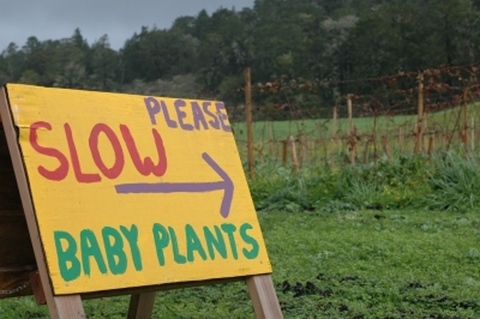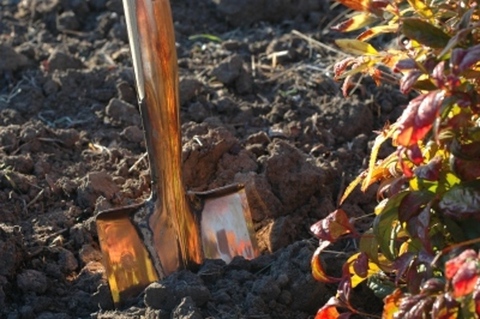In 1833 Pescadero was part of Rancho Pescadero, a Mexican land grant awarded to a Juan José Gonzales. Gonzales’ men farmed the rancho for their boss, who lived in Santa Cruz. Rancho Pescadero was prime pasture then, and is still fertile farming land for families who bought their land some generations ago from that initial rancho, and for first-generation farmers, many of whom rent from philanthropic landlords who wish to preserve that prime pasture.
Through luck and boundless optimism, we extended our farm last year and will begin the challenge of resurrecting that new land and barn. There will be fresh pasture, a nursery to raise our baby goats, and public space for visitors, to take some of the weekend parking pressure away from our neighbors. We will make a garden walk this spring, to connect the nursery and farm, because it’s a joy to grow plants in the black gold of our valley, and because we want to experiment with our new range of copper alloy tools. These tools are made by a small family company named PKS, in Austria, and they have an intriguing philosophy.
The Austrian forester Viktor Schauberger, whose son founded PKS, was passionate about developing practical tools for working with the living entity of soil. He found copper alloy tools better than other metals for farming because tiny traces of copper slough off into the earth and increase enzymatic action, promoting healthier plants year after year. His copper-worked gardens had fewer slugs and snails, but not earthworms. The pests, but not the worms, do not have iron in their blood and are apparently strongly attracted to magnetic fields. They cannot resist the traces left by iron tools, which naturally often end in tender lettuce snacks. Copper, on the other hand is not magnetic and leaves no clues for pests. We will enjoy using the tools in our own experiments this year, and let you know how our own slice of Rancho Pescadero grows in 2012.


